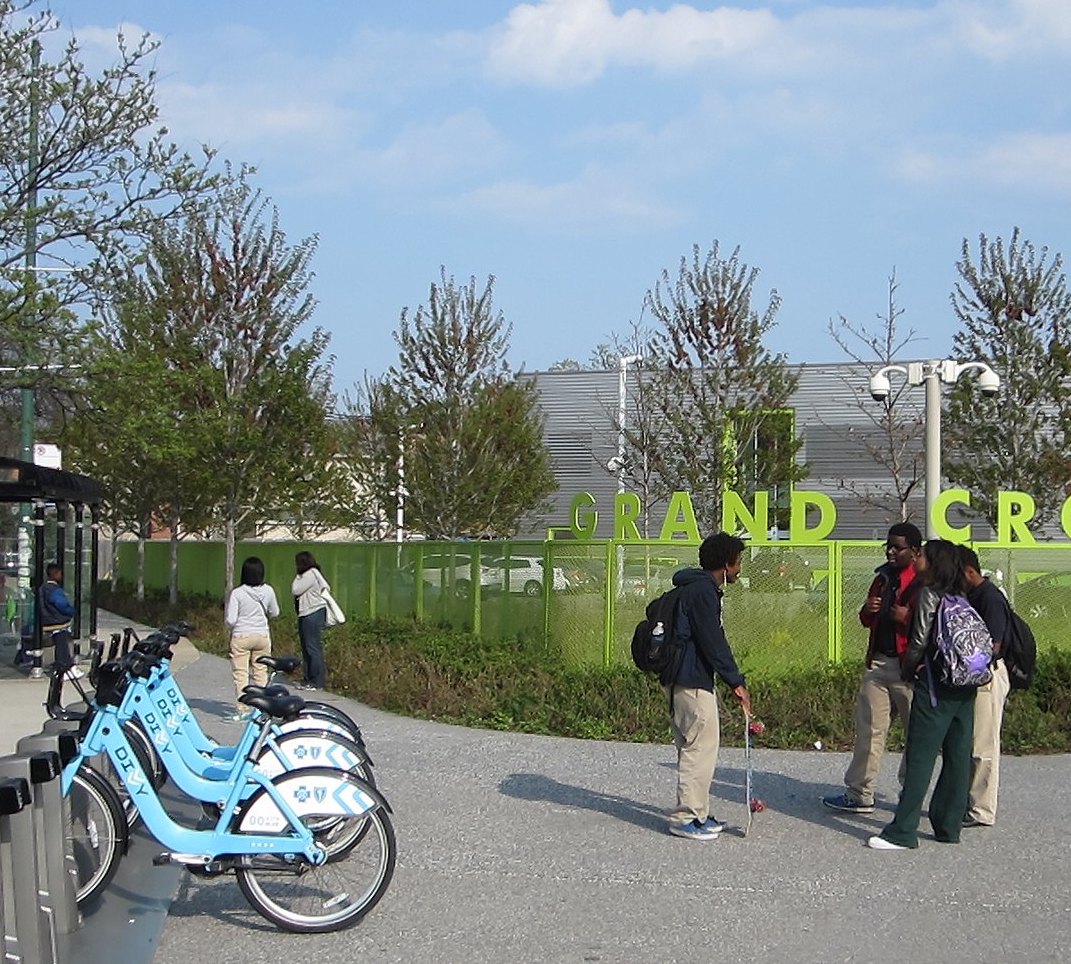In June Streetsblog Chicago discussed in depth the equity problems associated with Divvy's new e-bike pricing system, which kicked in on May 10.
In a nutshell, while the bike-share system previously waived the per-minute fees for using its black or gray electric bikes for trips starting or ending west of Western Avenue or south of Pershing Road, under the new scheme, all e-bike trips involve a per-minute fee. That's not such a big deal in more central neighborhoods, where Divvy members can choose to ride the older, blue non-electric bikes and pay no extra use fees.
But in outlying communities – where residents are generally more likely to be low-income or blue-collar, there are no full-service stations, the only kind that accommodate the blue bikes. Therefore, people making trips to and from these parts of town have no choice but to use the e-bikes, and the per-minute fees can really add up. (The situation is a little more complex than what I've outlined here – read our full post on the subject for more details.)
Recently at a music festival I ran into an acquaintance who previously worked for Lyft, the Divvy concessionaire, which runs the city-owned system for the Chicago Department of Transportation, which oversees it. We discussed the equity issues. "Look," they said frankly. "At this point the Divvy system can either be equitable, or it can be financially sustainable. But it can't be both unless the city helps out Lyft financially."
The ex-Lyft staffer argued that company's nine-year contract extension with the city, passed in 2019, was unrealistic. The deal called for Lyft to buy all the additional bikes and stations needed to expand the system citywide; guaranteed a minimum of $77 million in revenue for the city over the remaining nine years of the contract, plus $10 million for the Divvy for Everyone discounted membership program; and included several other perks for Chicago. The former employee argued that the contract turned out to be unsustainable – it was basically impossible for Lyft to hold up its end of the deal without making the system a lot more expensive to use.
Meanwhile, Ald. Daniel La Spata (1st), one of the the City Council's most bike-friendly members, introduced a resolution at last month's Council meeting calling for Divvy to answer questions about what's going on with its new pricing system.
"In spring 2022, Divvy implemented new pricing schemes for electric bikes, removing pricing benefits for areas targeted for equitable implementation of micromobility policies, and functionally increasing the cost of using electric bikes across the city," La Spata noted. "The city implemented a "Chicago Moves" program in spring 2022, providing Chicago households in areas of need with assistance for their gas purchases or rapid transit passes."
The alderperson suggested that "the city can encourage Chicagoans to increase Divvy trips by examining changes in pricing, and assessing ways to reduce pricing for electric bikes." As such, the resolution called for CDOT "to report on the current Divvy pricing schemes, and to report any changes in ridership trends as a result of these pricing schemes... and to report on the impacts of current Divvy pricing within areas that previously received discounts or waived pricing in order to achieve equitable mobility goals."
Asked about the resolution, a CDPOT spokesperson basically gave Streetsblog a non-answer: "The growth of Divvy has played a key role in expanding access to low-carbon, affordable mobility options in Chicago, and remains a critical part CDOT’s goals to create a more sustainable and equitable transportation network."
However, Lyft spokesperson Jordan Levine indicated that the company would be willing to discuss Divvy's current equity issues with LaSpata. "We share CDOT’s commitment to expanding the Divvy system with equity as a priority and guiding principle, and will support members of the City Council in exploring recent changes to Divvy as the system continues to mature,” he said.
Kudos to La Spata for putting some pressure on CDOT and Lyft to address equity concerns. After all Divvy is a fantastic sustainable transportation system, but it's not only crucial that it stays solvent, it also needs to be accessible to Chicagoans in all parts of the city, from all walks of life.






